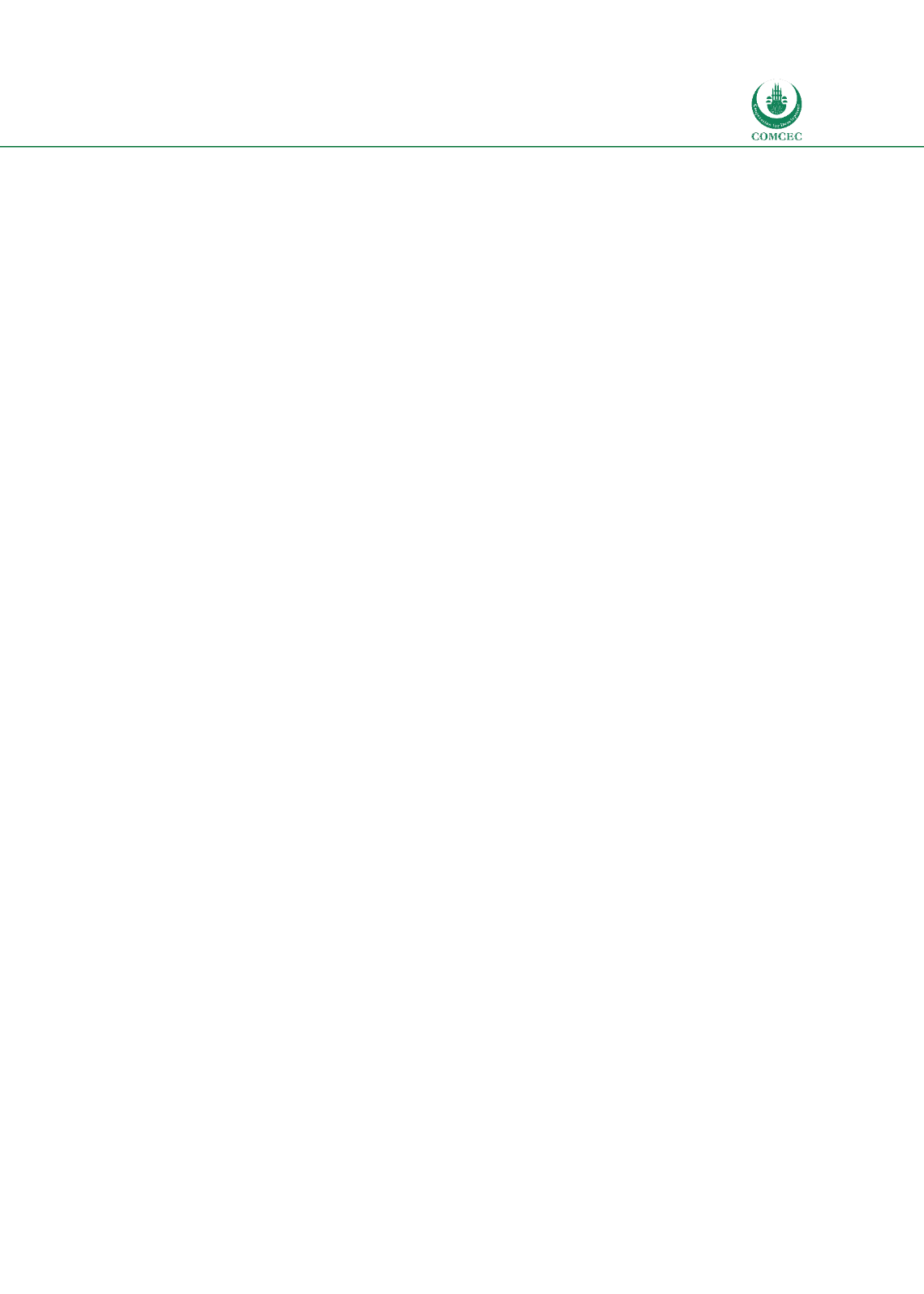

National and Global Islamic Financial Architecture:
Prolems and Possible Solutions for the OIC Member Countries
137
The Financial Markets Regulations Act 2015 (FMRA 2015) made the Financial Markets
Regulation Authority (FMRA) the regulators of capital markets in Sudan. The regulations
framework also included the Trading Regulations of 2010 and the Settlement and Clearing
Regulations of 2010. Both regulations were based on the KSE Act of 1994 (KSE 1994).
According to Clause 16 of Chapter Three of the KSE 1994, the KSE is governed by the KSE
Board of Directors (BOD) that includes the Minister of Finance (chairman) and CBOS Governor
(deputy chairman). The registration of brokerage companies is regulated by the Registration
Brokerage Companies Requirements that have been issued by the KSE Board of Directors in
meeting number (6/2005) dated 12/10/2005, (KSE, 2005).
The Sudan Financial Services Company (SFSC)
owned by CBOS and the Ministry of Finance and
National
Economy was
established specifically to control the issuance and trading of
Investment sukuk and government investment sukuk directly to the public or through public
brokerage Companies in KSE and all CBOS branches in different regions of the country.
The
company organizes auctions in the Security Primary Market for trading Government
Musharakah certificates (Shahama), Government Investment Certificates (SARH), CBOS Ijarah
Certificates (Shihab), Khartoum Oil Refinery Ijarah Certificates (Shama), in addition to the
Sudanese Electricity Distribution Company Ijarah Certificates (Shasha) in local currency, and
the Sudanese Electricity Transmission Company Ijarah Certificates (Noor) in US dollars, (SFSC,
2016; CBOS, 2014). In addition, CBOS also established the Tarweeg Investment Company with
the
aim of achieving immediate settlement of all purchased and sold securities on behalf of
customers, and it also operates as an arm of CBOS in secondary markets
to contribute to the
achievement of the monetary policy purposes through open market operations along with the
promotion of all securities and products of the SFSC in both the primary and secondary
markets (CBOS 2014)
.
4.10.3. Shariah Governance Framework
Shari'ah governance for banks is regulated by a central Shari'ah Supervisory Board while
clause (2) of the Banking Act of 1991 has created the Shari'ah High Supervisory Board (SHSB).
It delegates to the SHSB the role of supervision and the accomplishment of Shari'ah rules
within CBOS and all banks. The SHSB encompasses experts in Sharia rules and principles,
economics, and banking. It also supervises the CBOS policies as well as the activity of banks
and financial institutions to ensure full compliance with the Shari'ah rules and principles. All
banks are also instructed to establish a Shari'ah Supervisory Board (SSB). Appeals from SSB
are heard by the SHSB. Fatwas issued by SHSB in any disputes related to banks activity are
obligatory on CBOS, bank, and other financial institutions unless they appeal to the judiciary
(IMF and WB 2005).
Insurance Companies for Shari'ah governance are regulated by the High Shari'ah Supervisory
Board (HSSB) for the insurance sector. HSSB has been established in accordance with Article 7
of the Supervision and Control Act of 1992 and with the resolution of the Minister of Finance
and National Economy No. 219 for the year 1992 to form the HSSB of the ISA. Each insurance
Company also has to establish its own Shari'ah Supervisory Board. The main objectives of the
HSSB are to issue Fatawa on matters raised by the ISA, cleanse insurance operations from any
kind of non-Shari'ah compliant transactions, and standardize the vision of the Shari'ah
Supervisory Boards of the insurance companies (Sulieman, 2013).
















